What are Lenses?
A lens is a curved piece of glass or other transparent material that refracts or bends light. Lenses are used in eyeglasses, cameras, microscopes, telescopes, and other optical instruments to focus and manipulate light.
Types of Lenses
There are two main types of lenses:
- Convex Lenses: These lenses are thicker in the middle and thinner at the edges. They refract light rays to converge at a focal point. Convex lenses are also called converging lenses because they bring light rays together.
- Concave Lenses: These lenses are thinner in the middle and thicker at the edges. They refract light rays to diverge, or spread out. Concave lenses are also called diverging lenses because they cause light rays to spread apart.
How Lenses Work
When light passes through a lens, it is bent or refracted. Convex lenses cause light rays to converge, while concave lenses cause them to diverge. This bending of light allows lenses to focus and magnify objects, creating images that are larger or smaller than the actual object.
Applications of Lenses
Lenses have many practical uses in everyday life and scientific research. Some common applications of lenses include:
- Correcting vision problems with eyeglasses or contact lenses
- Taking photographs with cameras
- Examining tiny objects with microscopes
- Observing distant objects in space with telescopes
Study Guide
Here are some key points to remember about lenses:
- What are the two main types of lenses?
- How does a convex lens bend light?
- What are some practical uses of lenses?
- Explain how lenses are used in a microscope.
- Draw a diagram showing how light rays pass through a convex lens to form an image.
[Lenses] Related Worksheets and Study Guides:
.◂Science Worksheets and Study Guides Fourth Grade. Rocks and minerals
Study Guide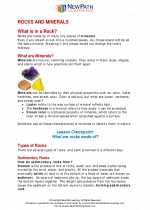 Rocks and minerals
Rocks and minerals  Activity Lesson
Activity Lesson The Rock Cycle
The Rock Cycle  Worksheet/Answer key
Worksheet/Answer key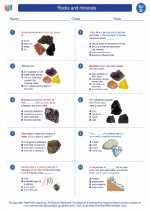 Rocks and minerals
Rocks and minerals  Worksheet/Answer key
Worksheet/Answer key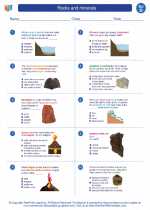 Rocks and minerals
Rocks and minerals  Worksheet/Answer key
Worksheet/Answer key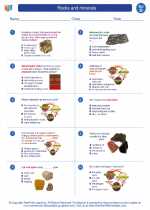 Rocks and minerals
Rocks and minerals  Worksheet/Answer key
Worksheet/Answer key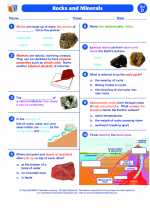 Rocks and Minerals
Rocks and Minerals  Vocabulary/Answer key
Vocabulary/Answer key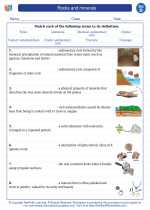 Rocks and minerals
Rocks and minerals  Vocabulary/Answer key
Vocabulary/Answer key Rocks and minerals
Rocks and minerals  Vocabulary/Answer key
Vocabulary/Answer key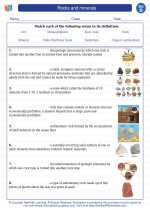 Rocks and minerals
Rocks and minerals  Vocabulary/Answer key
Vocabulary/Answer key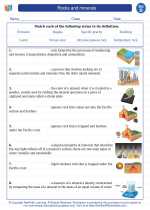 Rocks and minerals
Rocks and minerals 

 Activity Lesson
Activity Lesson
 Worksheet/Answer key
Worksheet/Answer key
 Worksheet/Answer key
Worksheet/Answer key
 Worksheet/Answer key
Worksheet/Answer key
 Worksheet/Answer key
Worksheet/Answer key
 Vocabulary/Answer key
Vocabulary/Answer key
 Vocabulary/Answer key
Vocabulary/Answer key
 Vocabulary/Answer key
Vocabulary/Answer key
 Vocabulary/Answer key
Vocabulary/Answer key

The resources above cover the following skills:
Concepts of Earth Science (SD1, SD2, SD3, SD4)
The student demonstrates an understanding of geochemical cycles by describing that most smaller rocks come from the breaking and weathering of larger rocks as part of the rock cycle.
The student demonstrates an understanding of geochemical cycles by recognizing the physical properties of water as they relate to the rock cycle.